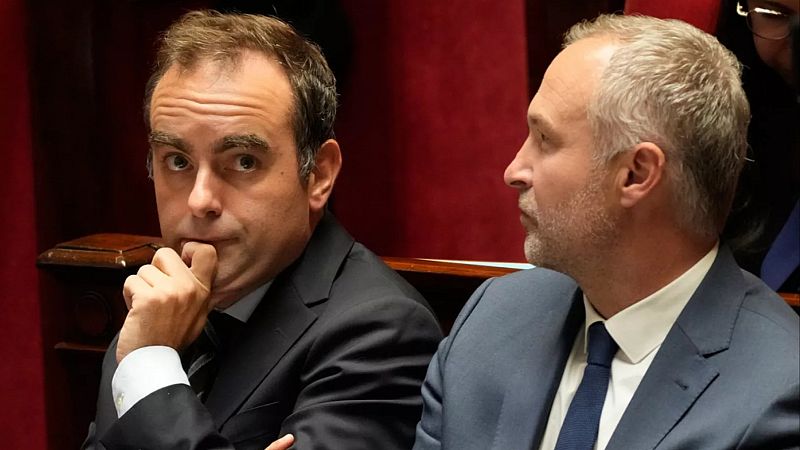French PM Lecornu survives two no-confidence votes, clinging to fragile minority government

French Prime Minister Sébastien Lecornu survived two no-confidence votes in parliament on Thursday, clinging to his fragile minority government.
MPs of the National Assembly, the lower house of parliament, voted on two motions filed by the hard-left France Unbowed (LFI) and the far-right National Rally (RN), led by Marine Le Pen.
The first motion filed by the hard left was narrowly rejected, garnering only 271 of the 289 votes needed to topple the government.
The second motion filed by the far right also failed (144 votes) as the left refused to support it.
Both groups were hoping to bring down Lecornu’s fragile government, less than a week after Macron controversially reappointed the prime minister after he had resigned.
The RN, which already holds the largest number of seats in parliament, has been pushing French President Emmanuel Macron to call snap elections — a hazardous decision both the left and the leader's centrist alliance have been trying to avoid.
The far right believes it is well-positioned to make further gains if fresh elections are called, according to the latest polls.
“The National Rally awaits the day of dissolution with growing impatience. We can’t wait to return the ballots before the French people,” Le Pen said in her speech on Thursday morning.
Tensions reach a boiling point
Tensions inside the National Assembly reached a boiling point Thursday morning as Lecornu faced constant heckling during the debate, forcing Speaker Yaël Braun-Pivet to repeatedly restore order.
In a last-ditch attempt to win over wavering moderate left-wing lawmakers, Lecornu announced on Tuesday that he would suspend Macron’s unpopular pension reform, which gradually raised the retirement age from 62 to 64.
The details, however, remain unclear. On Wednesday, Lecornu said the suspension would come as an amendment to the social security budget rather than through a new law, which caused uproar from some Socialist MPs who on Tuesday said they would give Lecornu the key number of votes needed to survive.
Since Lecornu survived these two votes, parliament will finally turn its attention to the 2026 budget, a key test for the EU’s second-largest economy.
The Finance Committee is expected to begin work on Monday, before the draft reaches parliament by the end of next week.
Lecornu has pledged not to invoke Article 49.3, the controversial constitutional tool that allows the government to bypass a vote, setting the stage for a bitter battle among a fragmented National Assembly.
Today

